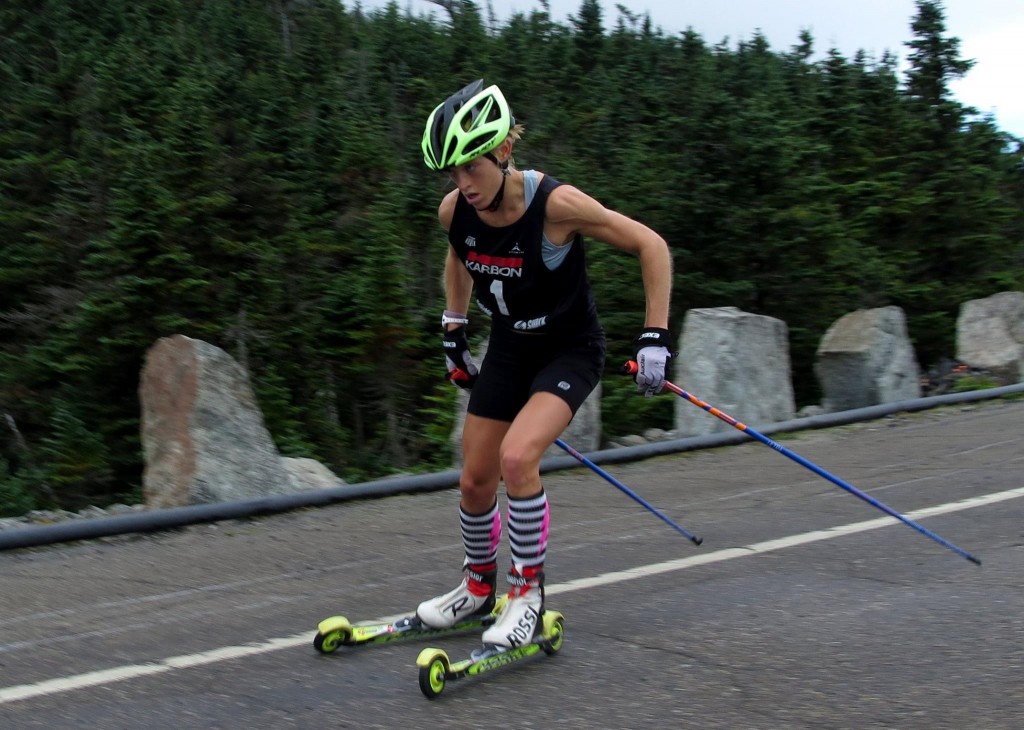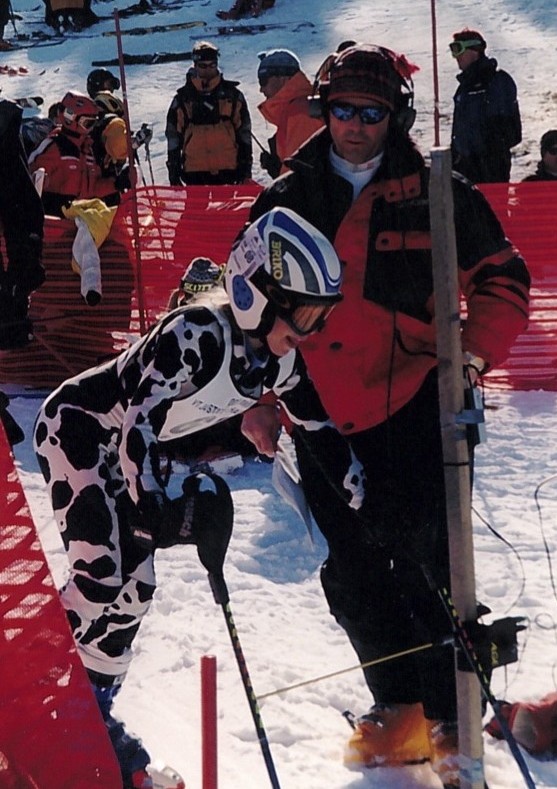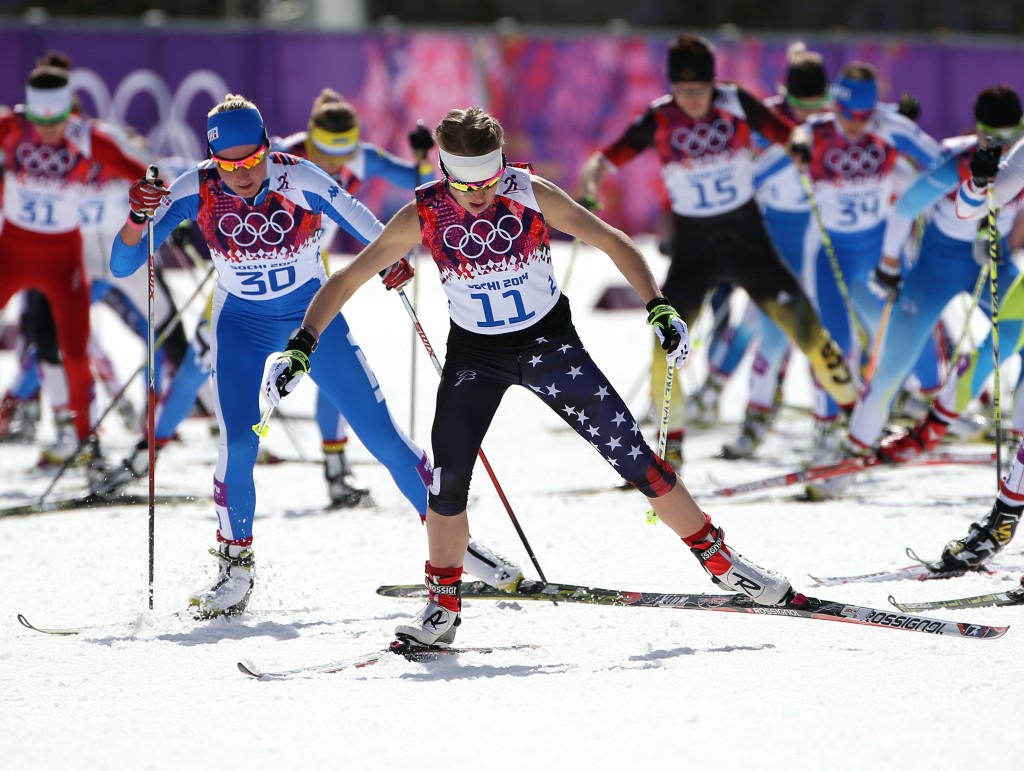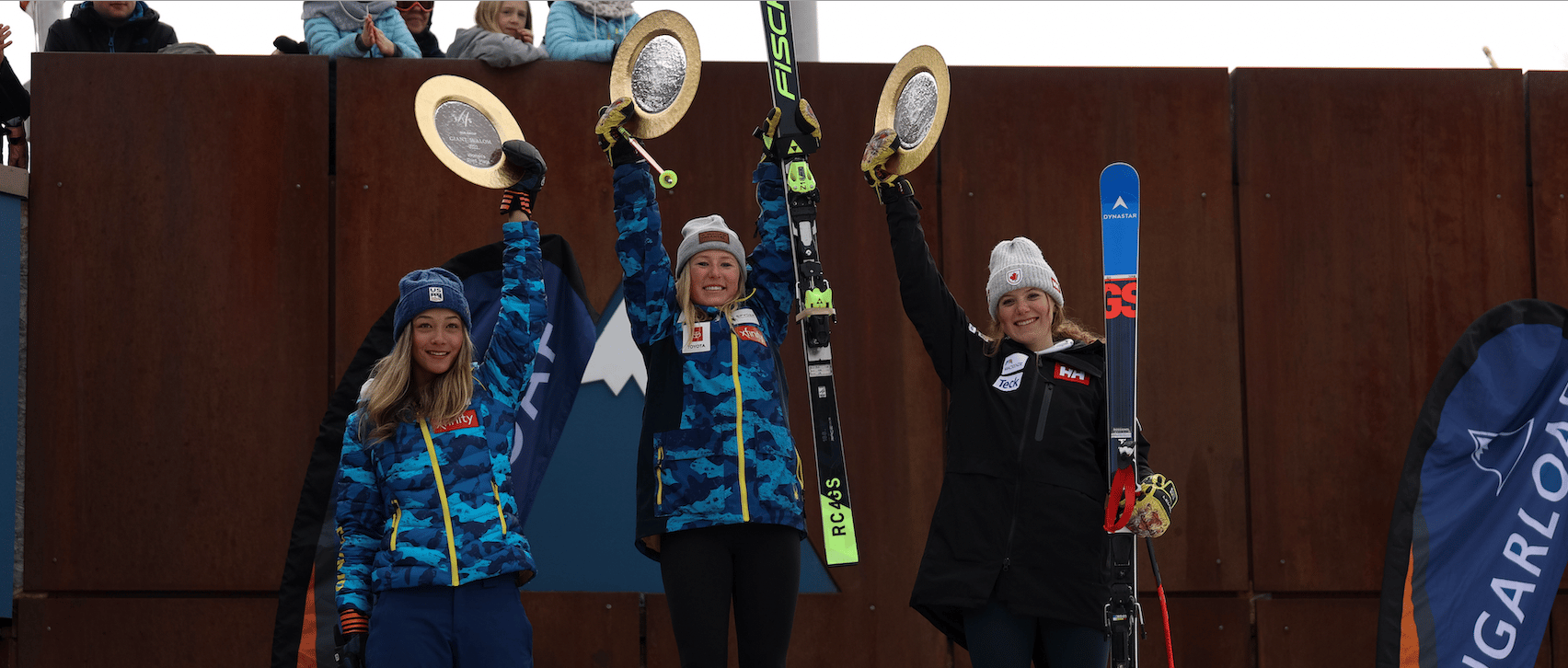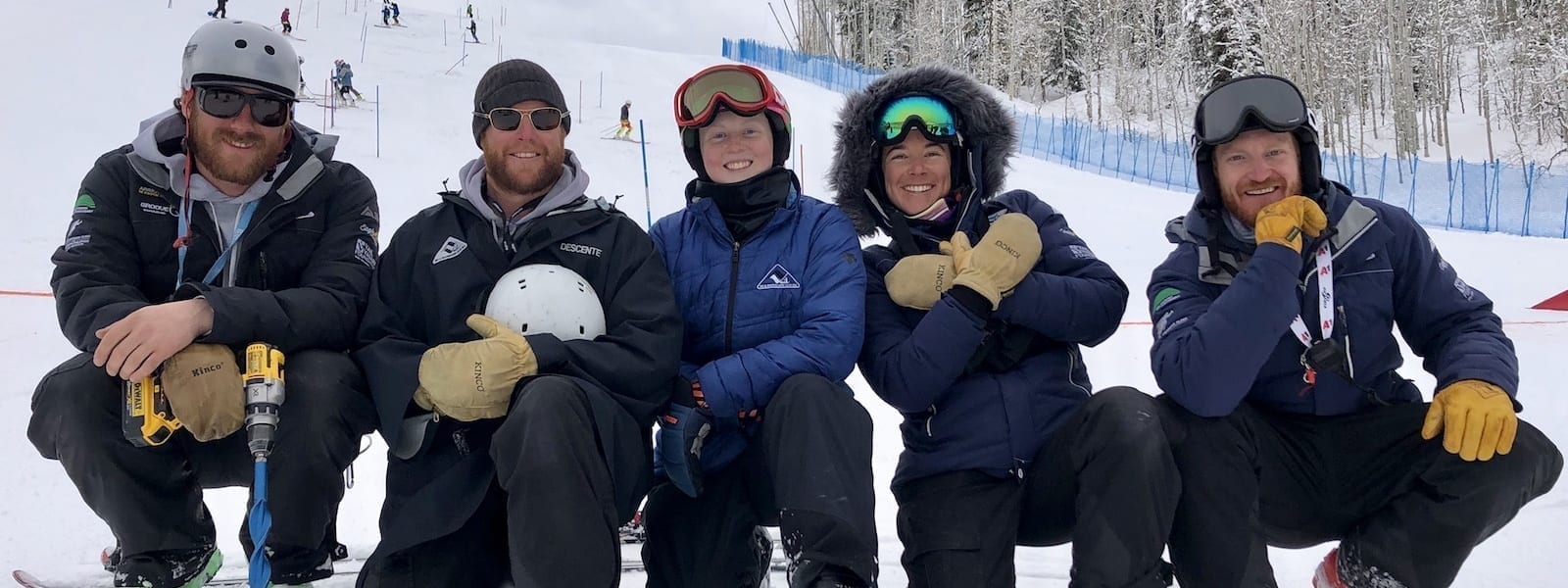From alpine to Nordic, Liz Stephen finds meaning in sport
After a series of dominating performances at the Tour de Ski, Climb to Castle and Norwegian Blink Festival, Liz Stephen has established herself as the world’s best uphill skier. Ironically, she built that successful career on a foundation that started with skiing downhill. Her paradoxical success doesn’t end there, as the known team player trains independently, leads quietly and labels her character as a social introvert.
The East Montpelier, Vt. native made the switch from alpine to Nordic in her second year at Burke Mountain Academy in 2003 and has used her unique perspective on teamwork to impact the sport ever since.
“When I made the switch from alpine to Nordic, the team at Burke treated me like they wanted me to love skiing,” Stephen recalled during a break between training sessions in Lake Placid last week. “The XC community, both in skiing and running, has always been so embracing, they are excited to share their sport and always want more people to join.”
The switch appeared to be a good one, as she made the Nordic U.S. Ski Team only three years later and has since built a reputation around her quiet influence and behind-the-scenes leadership. That character, if nothing else, has cultivated a culture in the sport that highlights what brought her to abandon her edges in the first place: teamwork. Whether it be from her unique start in skiing or her independent approach to training, Stephen balances her individual and team goals through doing things a little differently.
U.S. Ski Team women’s coach Matt Whitcomb was the Nordic coach at Burke at the time of Stephen’s transition. He notes that the values that drew her to Nordic are those which most define her role on the team now.
“Even then I remember what sold her on the switch was the unique concept of ‘team as family’ that our sport naturally fosters,” he said. “That she could train side by side with her teammates rather than threading slalom gates on her own really caught her attention.”
Stephen had grown weary of the competitive individuality that alpine racing demanded and saw in Nordic an opportunity to revitalize her love of skiing. Whitcomb and Stephen both remember the guidance of the older girls on her team, teaching her “how to be a Nordie,” which meant, among other things, not wearing heavy snow pants to practice.
When her years at Burke slingshotted her onto the international circuit, Stephen adopted the values she had learned there and brought them to the U.S. Ski Team. Her youngest teammate, Jessie Diggins, immediately felt welcome when she joined the team in 2011.
“She has always been the ‘glue’ that holds the US team together, and in many ways she is also the team leader,” Diggins said.
What’s more, Stephen holds the team together without being overbearing. Whitcomb noted, “She can lead without speaking, and instead by listening.” Her approach to the sport and to her teammates is natural, gentle, rather than dialed and overt. For example, instead of choosing to ski for a domestic elite team, as most of her national teammates do, Stephen trains on her own throughout most of the summer in Park City, Utah because it offers her a specific flexibility she couldn’t find elsewhere.
“I’ve taken those personality tests, and even though I don’t act like it, I’m an introvert.” She often refers to what she needs as ‘Liz time,’ a necessary part of having the energy to invest in her teammates for five months of the year.
“Just getting the chance to go out and enjoy the quiet in the woods and work around your own schedule, paying attention to what your body needs is refreshing and reenergizing,” she noted.
Stephen’s independent training gives her the energy to support her teammates, but also to bounce back from low moments. Despite the support of her coaches and teammates, summer training and post-Olympic deflation, she again faces the difficulties she had as an alpine athlete 11 years ago: finding meaning in sport.
“I struggled after the Olympics. I’m getting on the older end of athletes and the longer you do something the more it begins to feel like a routine. I couldn’t help but wonder what I was doing with my life at the moment, I had to figure out why it mattered to me, to figure out why what we do is meaningful.”
One way she found value was through participating in programs like Fast and Female, where she gets to directly interact with the people she impacts. What made the difference for Stephen, though, was traveling to places where ski culture is so “in your face” that she couldn’t help but know that what she did mattered.
Four years ago, she began traveling to Scandinavia for training blocks in the summer, first going to Sweden then to Norway, training with World Championship and Olympic medalists Anna Haag (SWE) and Astrid Jacobsen (NOR) and their teams. Just like the Burke Nordic team piqued her athletic interest in high school, the cultures of these countries have reenergized Stephen’s investment in skiing.
Stephen said she feels at home when she visits Scandinavia, that she could see herself living there full-time in the future. For now, she appreciates the attention she receives for her results by the people on the street, especially after her low-key approach to training at home.
“This job is a real job, it comes with responsibilities and getting recognition for the work you do makes you realize that you’ve enhanced someone’s life in some way.”
Through her persistence and energy, Stephen has not only built a successful career in endurance athletics, but harnessed a sense of togetherness in a traditionally individual sport. That togetherness and sense of teamwork has extended far beyond domestic soil, creating a world-wide cooperative focused on growing and sharing Nordic skiing.
For some, creating that world community may seem like an uphill battle, for which there is no person better for the job than Stephen. She was emphatic that the lowest moments in skiing are overwhelmed by the positive experiences, and sees every decision as one worth making.
“I don’t regret a thing; it’s been an amazing journey.”
